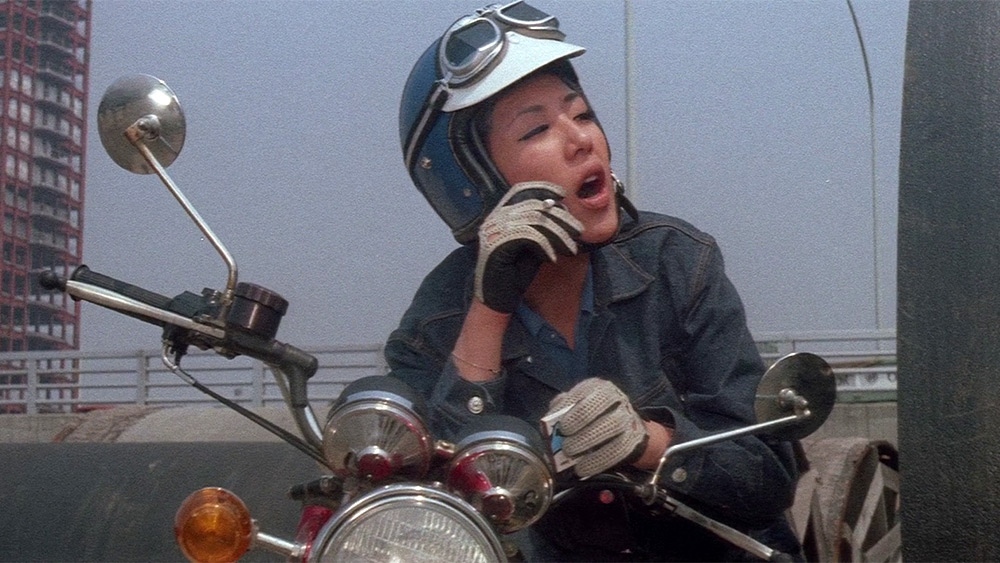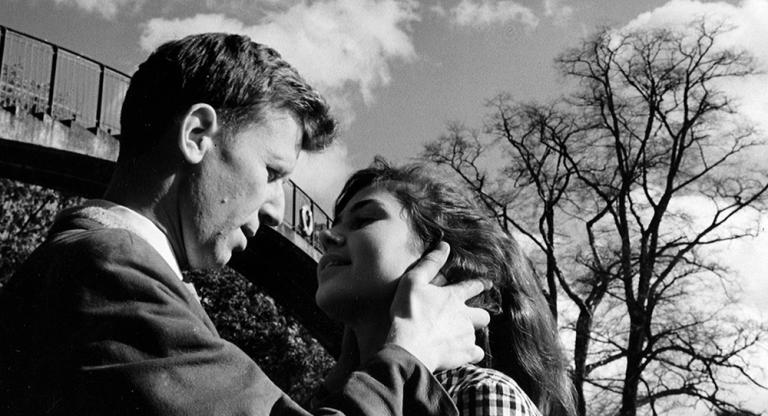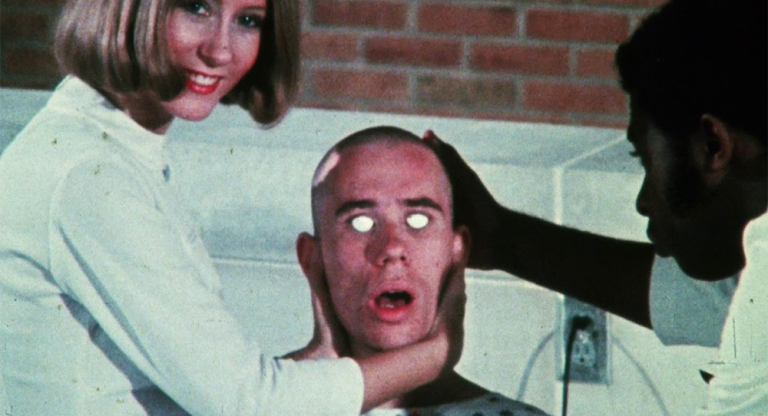The rebellious bosozoku biker gangs first emerged in 1950s Japan, when young kamikaze pilots were discharged and forced to return to ordinary society after World War II. These men expected to die for their country, and struggled to reintegrate into civilian life. Seeking an outlet for their disillusionment and a quick adrenaline fix, they turned to reckless street racing, influenced by the greaser culture brought into Japan by the American occupation. By the 1970s, bosozoku was a full-blown phenomenon: gangs of youth clad in matching jumpsuits cruised the streets on tricked-out motorbikes that were heavily inspired by American choppers and British café racers. Many of these groups had criminal ties and at their peak an estimated third of new Yakuza recruits came from bosozoku gangs.
Starring pop singer Akiko Wada and Meiko Kaji (a then-budding outlaw icon who went on to star in 1972’s Female Prisoner Scorpion #701 and 1973’s Lady Snowblood), Yasuharu Hasebe's Stray Cat Rock: Delinquent Girl Boss (1970) embodies the anarchic spirit of bosozoku. The first of five films in the Stray Cat Rock series, Delinquent Girl Boss helped define pinku violence: an exploitation subgenre heavily influenced by Yakuza movies and the feminist revolution of the ‘60s. Hasebe's film interrogates power, loyalty, and rebellion through the lens of delinquent young women who refuse to behave the way society expects them to. Defying the postwar period’s lingering norms of obedient women, they mirror the rising feminist demands for equality and autonomy of its time.
When Ako (Wada) and Mei (Kaji) first meet, Mei mistakes Ako for a man. She hops on the back of Ako’s motorbike and tries to flirt her way into a free ride to meet her gang, the Stray Cats. But the scene isn’t just a comedic beat, as the women of Stray Cat Rock occupy spaces dominated by men, brawling in the streets and riding motorbikes. Bosozoku girl gangs were virtually nonexistent during the 1970s and the Stray Cats are a pinku violence fantasy, hellbent on challenging patriarchal institutions and traditional notions of authority.
The Stray Cats do not fight as a fetishized spectacle. Their fierce brawls are shot with the same frenetic intensity as any Yakuza showdown. When a rival girl gang calls in their boyfriends to fight for them against the Stray Cats, Ako is furious at their underhanded tactics. She jumps into the fray alongside Mei, securing victory and joining the gang. Soon after, Mei’s boyfriend Michio botches a scheme to fix a boxing match with the right wing Seiyu Group and the girls are forced into a fight for survival.
The film’s most poignant moment comes to us during a quiet interlude. Ako sits beside her motorcycle, somberly singing to herself: “Women are women, after all / nothing like men / but sometimes we risk our lives like men.” She distills her and Mei’s refusal to be reduced to traditional femininity or imitators of masculine violence. They are women forcefully carving out a space for themselves in a world that mistakes their fury for hysteria. Delinquent Girl Boss rises above its exploitation trappings, becoming a radical meditation on autonomy, love, and defiance.
Stray Cat Rock: Delinquent Girl Boss screens this evening, Jun 7, at the Arverne Cinema as part of the series “Bosozoku Beach.”



